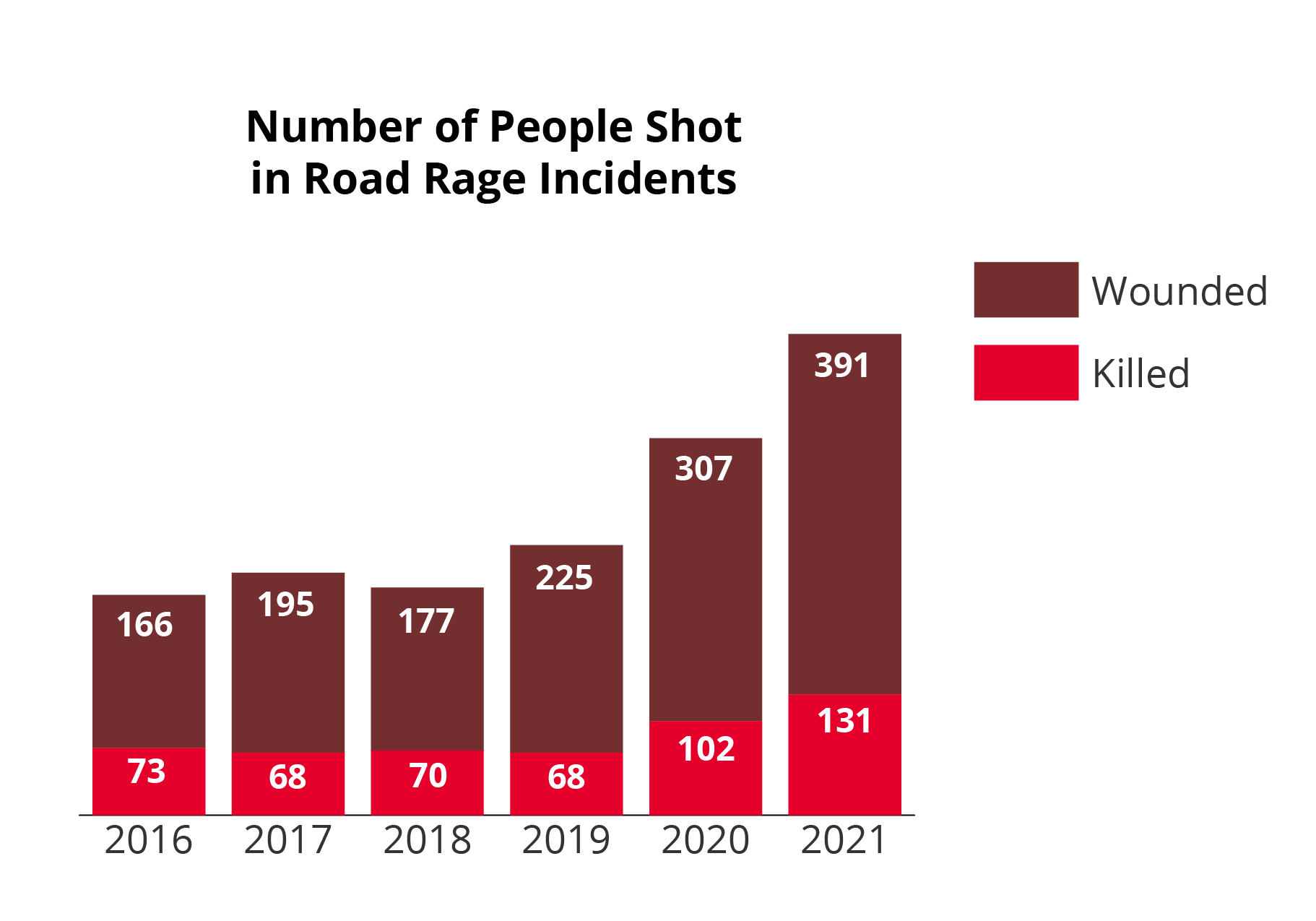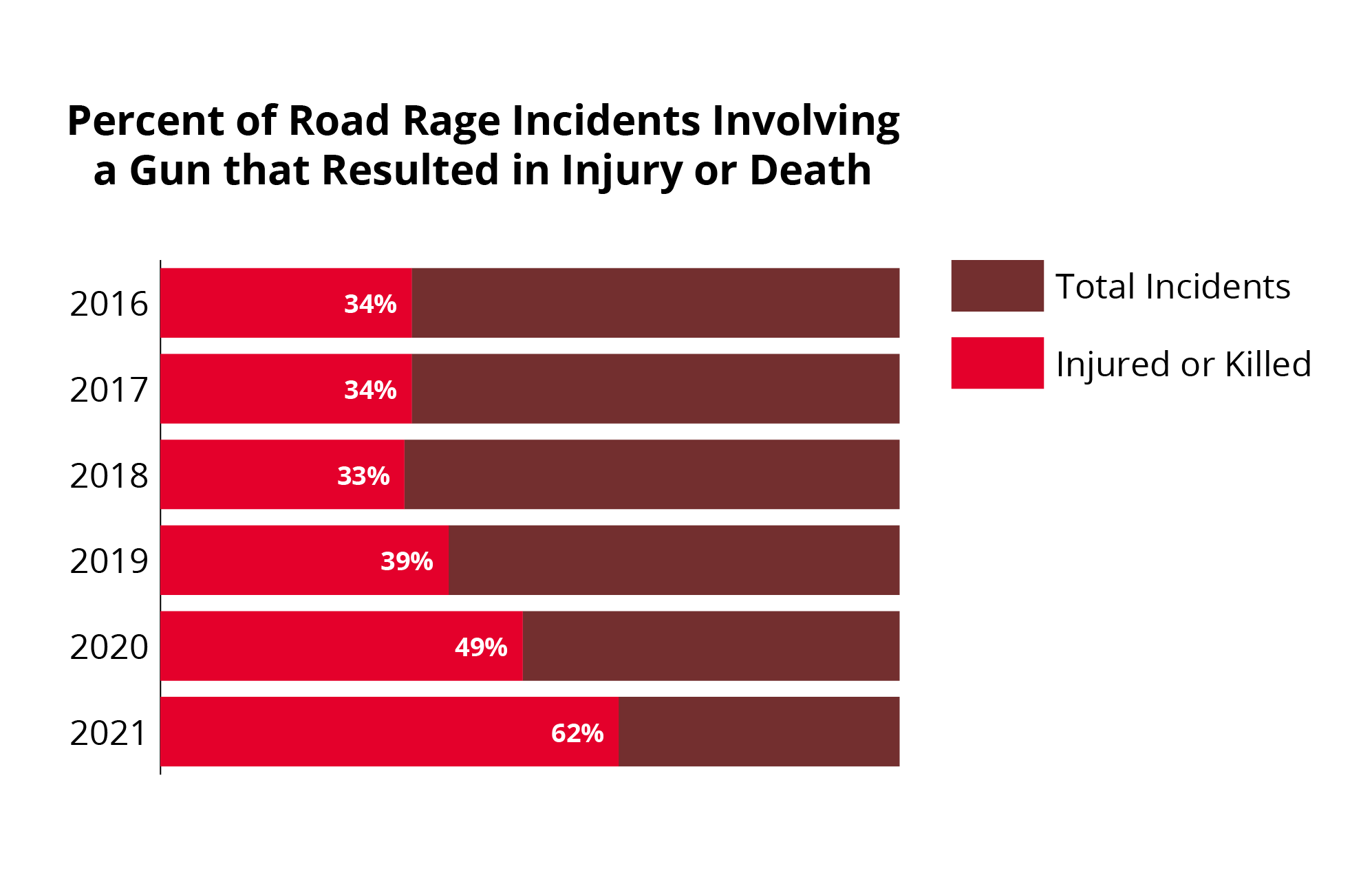How To Deal With Road Rage
Road rage fatalities are at unprecedented levels. Clinical psychologist and professor, Sherecce Fields, talks through the psychological processes of impulsivity and what we can do to mitigate our aggression while driving.

By Brittney Nava ‘23

Sherecce Fields, professor of psychological and brain sciences.
Rush hour, traffic jams, cars criss-crossing between lanes — these are common experiences for anyone who drives a car; however, for drivers in the U.S., these situations are turning deadly.
Last year, this country suffered its highest number of gun-involved road rage incidents. A report from Everytown Research & Policy analyzed data from the Gun Violence Archive and found that road rage shootings have been increasing since 2018, with 2021 holding the most tragic numbers.
“In other words, a person was shot and either injured or killed in a road rage incident every 17 hours, on average, during 2021,” the article reports.
The study revealed that the monthly average of 2021’s road rage shootings is double that of the pre-pandemic average, rising to 44 people killed or injured each month. Texas is responsible for a quarter of these fatal incidents.
While it’s difficult to identify a definitive cause of the unprecedented increase in gun-related road rage incidents, there are some observable patterns that may provide insight.
The report noted that the enduring social, political, and economic stressors of the pandemic is likely a significant correlation with the post-pandemic increase in gun sales and road rage shootings.
Dallas detectives recently told The New York Times that these incidents tend to occur in stressful moments, particularly around rush hour and after drivers cut each other off. They’re also occurring between complete strangers on the road, eliminating signs of premeditation and pointing toward impulsivity.

This graph depicts the significant increase in the number of people shot in road rage incidents since 2016, as reported by Everytown Research & Policy. | Graphic by Sarah Doyle ’15, ’18
The relationship between stress and impulse control
According to Sherecce Fields, clinical psychologist and professor from the Department of Psychological and Brain Sciences, there are two important regulatory systems in the human brain. One is a cognitive control system, which strategically coordinates behaviors in the context of completing a goal; the other system drives behaviors based on emotions and impulse.
“Usually, there’s a balance between the two,” Fields explained. “I will say for younger adults and adolescents, their cognitive system is still developing and the emotion-impulse control system is highly active. You see a lot more sensation-seeking and engaging in risky behaviors.”
Teenagers and young adults experience this imbalance as a result of their brain still developing, but even fully developed brains can have the two systems compete for primary control.
“Times of increased stress or chaos can also cause a mismatch in the control of each system,” Fields added. “You know, we just are coming through this pandemic, it’s been really chaotic, there’s uncertainty — that kind of causes that impulsive system to be more in control.”
So, what can we do?
Understanding how individual emotions are processed in the brain is crucial to combatting road rage. Fields shared a tactic called cognitive reframing which builds off the premise that emotions arise as a result of our perception of a situation rather than the situation itself.

This graph depicts the increase in the percent of road rage incidents involving a gun that resulted in injury or death since 2016, as reported by Everytown Research & Policy. | Graphic by Sarah Doyle ’15, ’18
“How we perceive situations [is] a point where people can intervene for themselves. Initially you might have very negative thoughts about something, but if you can reframe that thought to something more positive, it can be calming,” Fields explained.
Cognitive reframing is a technique commonly used in cognitive behavioral therapy and can be used to aid in behavior change across any area of life. In the context of road rage, this can help mitigate feelings of frustration and aggression.
“For example, you’re driving and there’s somebody really slow in front of you: If you perceive that that person is intentionally slowing down to impede your process, then that might elicit anger, right? The reframe would be, maybe they’re just being cautious or maybe they just had surgery and they’re nervous. If you can reframe in those ways to make it a more positive experience then that can be very physiologically calming to yourself,” Fields said.
Practicing cognitive reframing in conjunction with deep breathing exercises can help individuals learn to calm their physiological responses, and over time, adjust behaviors, including patterns of road rage.
“Our brain is this kind of plastic thing. You can relearn behavior, which is wonderful, actually,” Fields shared. “You’re never stuck in a certain behavior pattern. It can always change.”
